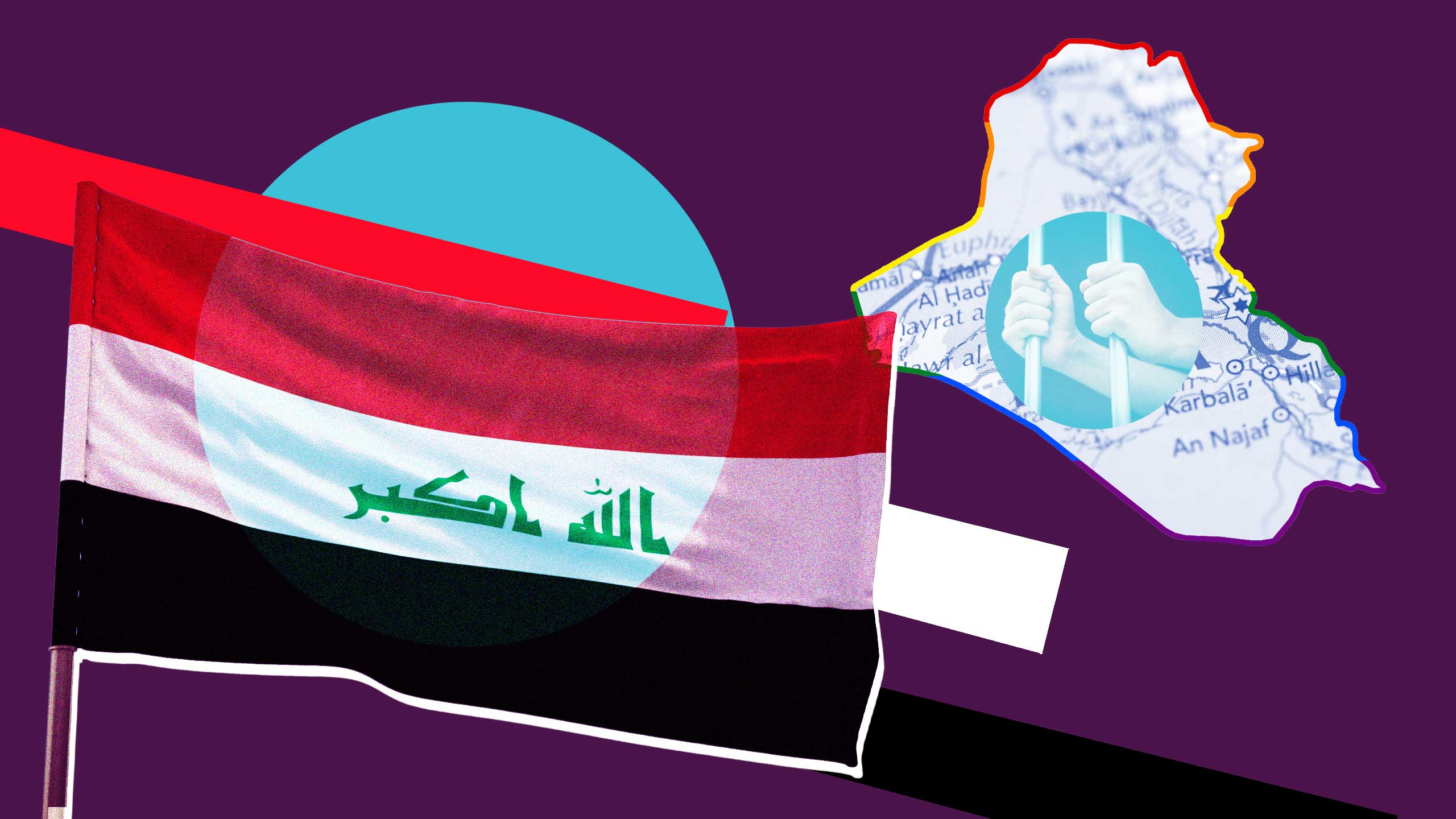Content warning: This story deals with violence and suicide.
LGBTQ+ Iraqis are being detained, tortured, sexually assaulted and murdered by armed groups, according to a new report. Human rights advocacy groups hope the testimonies from survivors will prompt long-overdue action to protect LGBTQ+ rights from both the Iraqi government and the wider international community.
A March 23 report from Human Rights Watch (HRW) and IraQueer includes first-hand accounts from 54 survivors who say they have been subjected to repeated beatings, rapes and entrapment. Khadija, a 31-year-old trans woman, alleges that she has “experienced horrendous forms of extreme torture,” including being beaten, raped and burned. She says she has also watched friends be tortured in front of her.
Khadija says the attacks left her traumatized, ashamed of her body and contemplating ending her life. “They have constrained my body, and I cannot love or be loved,” she says. “They wanted me dead.”
Khadija’s experiences are common among LGBTQ+ people in Iraq, according to the report. Its testimonies include eight abductions, four extrajudicial killings, eight attempted murders and 27 instances of sexual violence, as well asthreats and online targeting or entrapment of LGBTQ+ individuals. Some of these acts of violence were committed against children as young as 15.
The report also notes that the vast majority of the abuses occurred in public settings and in broad daylight—a fact that the authors say demonstrates the “climate of impunity afforded to perpetrators.” Perpetrators of the violence include groups operating under the Asa’ib Ahl al-Haq, a political party and paramilitary group, as well as groups under the state-run Popular Mobilization Forces (PMF) and the Ministry of Defense.
“The arbitrary nature of the attacks demonstrates that individuals are targeted as part of a larger scheme to intimidate those who do not adhere to normativity and to punish aberration,” the report says.
Although there is no law against being LGBTQ+ in Iraq, vulnerable minorities are afforded no legal protections against discrimination, and existing legal codes are ambiguous. Police often leverage Iraq’s laws to target LGBTQ+ people even without criminalization statutes on the books. Last June, police in the Kurdistan region used Article 401 of the Iraqi Penal Code, which criminalizes “public indecency,” to issue arrest warrants for 11 LGBTQ+ activists affiliated with a local human rights group.
While the activists have not been detained, the case remains open pending investigation, according to the report.
“Government actors and the international community can no longer turn a blind eye to these issues.”
Other LGBTQ+ people have reported being detained without a legal basis and subjected to numerous abuses behind bars, such as deprivation of food and water. Consequently, all interviewees noted that they would never report a crime committed against them to the authorities, either due to police inaction in response to previous reports or because they fear persecution by authorities themselves.
HRW and IraQueer say the testimonials provide conclusive evidence that the situation for LGBTQ+ Iraqis merits urgent action from both international leaders and also political authorities in Iraq.
“The value of this documentation is that government actors and the international community can no longer turn a blind eye to these issues,” Rasha Younes, a researcher with HRW’s LGBT Rights Program, tells Xtra. “Over the years when we have said that LGBT people are not protected in Iraq and face this egregious violence, they have told us that this doesn’t happen in Iraq, and they have asked for more evidence. So here’s the evidence.”
The report contends that the Iraqi government further reinforces a culture of discrimination by promoting policies grounded in ideas of “morality” that ultimately hurt LGBTQ+ Iraqis.
The country also has no existing domestic violence legislation at the national level, and many respondents report past abuse from family members, including sexual violence, conversion therapy and other human rights violations. Every person interviewed for the report says they have faced street harassment based on others’ perceptions of their sexual orientation or gender expression and felt pressure to conceal their identities in order to ensure their own safety.
“It cannot be that these individuals are left alone, unsupported.”
HRW and IraQueer emphasized the damaging nature of this kind of “self-imposed house arrest,” noting that 16 interviewees had attempted to take their lives on at least one occasion. “It took years for me to learn how to protect myself, including online,” says Abbad, a 26-year-old gay man from Baghdad. “I realized I had two choices—either act straight or get killed.”
Advocates urge authorities to ensure security both for LGBTQ+ Iraqis who need to leave the country but also for those who have no choice but to stay.
“There needs to be safe pathways for LGBT Iraqis who need to flee in some instances because of the threat to their lives,” Younes says. “It cannot be that these individuals are left alone, unsupported, when they need to escape due to a threat to their life.”


 Why you can trust Xtra
Why you can trust Xtra


